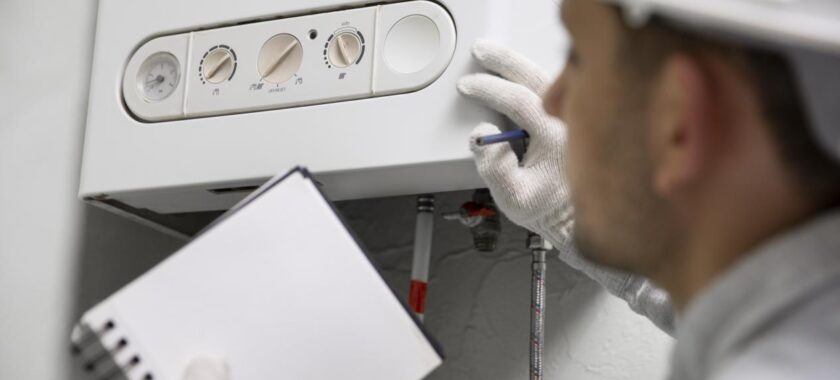With a truckload of experience under our belts, we at ProFlush are geared up to tackle one question that keeps popping up from our clients: Just how does a hot water system work? This guide isn’t just about lifting the lid on the inner mechanics of your hot water system, it’s also a sneak peek into how our ProFlush wizards keep your showers warm and your worries at bay.
Hot water systems are something most of us take for granted – until they stop working, that is. But have you ever paused mid-shower to ponder about the symphony of parts playing behind the scenes that lets you enjoy that comforting warmth? What exactly sets these systems ticking? Hold onto your hats, because we’re about to embark on a fascinating journey, venturing into the intricate heart of hot water systems. Drawing insights from Your Home, Australia’s guide to environmentally sustainable homes, it’s time to explore their inner workings like never before.
The Basic Principles
The principle behind a hot water system is relatively straightforward. Energy (usually gas or electricity) heats water, which is then stored in a tank until it’s needed. When you twist that tap open, it’s akin to rolling out the red carpet for the hot water pent up in the tank. Eagerly, it rushes out, making a beeline for your shower or sink, ready to transform your everyday routines into moments of comfort and warmth.. As this happens, it creates room for cold water to enter the tank, preparing for its transformation into comforting warmth.
Fascinatingly, the act of heating water isn’t simply about the luxury of a hot shower or clean dishes. It’s a task that pulls a considerable amount of weight when we look at our home’s total energy consumption.
As per a study by the Australian Government’s Department of Industry, a striking 21% of the energy we use in an average Aussie home is committed to this task, demonstrating the importance of efficient hot water systems. At ProFlush, our mission is to make sure that this energy is used efficiently.
Types of Hot Water Systems
There are mainly four types of hot water systems:
Storage tank systems: These are the most common type in Australia. They operate by continuously heating a tank full of water to a set temperature and storing it for use.
Continuous flow systems: These systems, also known as instantaneous systems, heat the water as you need it. They’re usually seen as the green warriors of hot water systems because they sidestep the energy drain of maintaining a tankful of hot water on standby when no one’s using it.
Heat pump systems: These are a more environmentally friendly option. They work by transferring heat from the air or ground into the water.
Solar systems: These systems use energy from the sun to heat water. While their initial installation might feel like a bit of a splurge, the long game is where they really shine, delivering noticeable savings over time that soften the initial financial blow.
Key Components of a Hot Water System
Several key components make up a hot water system:
Water source: This is typically from your home’s water supply.
Heating element: This could be a burner (for gas systems) or an electrical element.
Heat exchanger: A device that transfers heat from the heating element to the water.
Storage tank: This is where the heated water is kept until it is needed.
Outlet pipe: Hot water is delivered to your taps through this pipe.
Key Considerations for Choosing a Hot Water System
While understanding the workings of hot water systems is essential, choosing the right one for your home requires some consideration. Elements such as the headcount in your household, the sprawl of your home, your financial plan, and even the quirks of your local weather can all play a role in steering this choice.
For instance, a family with high hot water needs might find a storage tank system more suitable, while a smaller household or an apartment might benefit more from a continuous flow system. Conversely, if you’ve got an eye on reducing your carbon footprint and making your home a greener space, solar or heat pump systems might just be your cup of tea. They are highly efficient and an environmentally friendly choice.
Keep in mind that the perfect hot water system isn’t a one-size-fits-all proposition. Choosing the right system can lead to noticeable savings on your energy bills and make your home a cosier place.
If this all seems a bit overwhelming, or you’re just not sure where to start, don’t fret! The ProFlush team is here for you & you can request a quote online at our website. We’ve got a wealth of experience with all kinds of hot water systems and can guide you through the maze. We’ll make sure you land on a decision that fits your home and lifestyle like a glove.
How to Maintain a Hot Water System
Just like any other household appliance, hot water systems require regular maintenance to operate efficiently and last longer. Regular servicing can help identify potential issues early, preventing unexpected breakdowns and ensuring consistent hot water supply. It’s generally recommended to get your system checked at least once every two years. However, for certain types, such as continuous flow systems, annual checks might be more beneficial. You can find more details on our maintenance services here.
Conclusion
We hope this guide has given you a better understanding of how hot water systems work. Remember, whether you’re dealing with an unexpected cold shower or simply looking to upgrade your system for better energy efficiency, the ProFlush team is always here to help.
Frequently Asked Questions
What is the most energy-efficient hot water system?
The most energy-efficient systems are usually heat pump and solar systems. However, the best system for you can depend on many factors such as your local climate, your home’s energy setup, and your hot water usage.
How long do hot water systems last?
The average lifespan is around 10 to 15 years, but this can vary based on the type of system and how well it’s maintained.
Why is my hot water system not working?
There can be many reasons, from a simple issue like a pilot light being out to more serious problems like a faulty thermostat or a leak in the tank.
How often should I service my hot water system?
It’s recommended to have your system serviced by a professional every 1-2 years to ensure it’s running efficiently and safely.




